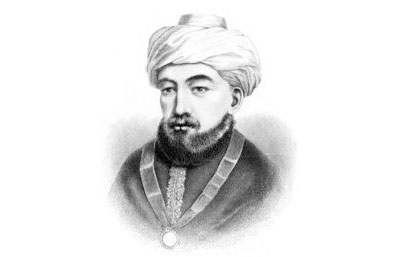
March 30, 1135
Moses Ben Maimon, known as Maimonides or the Rambam (an acronym for Rabbi Moshe Ben Maimon), is born in Cordoba, Spain, into a distinguished family (some sources give the year of his birth as 1138).
In 1148, the Almohads invade Cordoba and give non-Muslims the choice of conversion, exile or death. As a result, Maimonides and his family leave Cordoba and eventually settle in Fez, Morocco, in 1160. There, Maimonides begins writing commentaries on the Talmud and completes his education with a focus on medicine.
Religious persecution forces the family to migrate again, and, after a stop in Palestine, the family settles in Fustat, Egypt, in 1166, where Maimonides becomes a doctor and a rabbi. As a skilled doctor, he is eventually appointed to be the court physician to the ruling family. Most influential as a philosopher, he serves as the head of the Egyptian Jewish community.
In addition to many other texts, he writes 14 books, together titled Mishneh Torah, explaining Jewish religious laws and ethics. Among the many topics and laws discussed is the commandment of tzedakah (“charity”). Maimonides provides a ladder of priorities that teaches which kinds of charitable giving are better than others.
He writes his major philosophical work, Guide for the Perplexed, in Arabic as a letter to a student and publishes it toward the end of the 12th century.
Over the centuries, his body of work has been influential for prominent philosophers and leaders, Jewish and non-Jewish alike.
